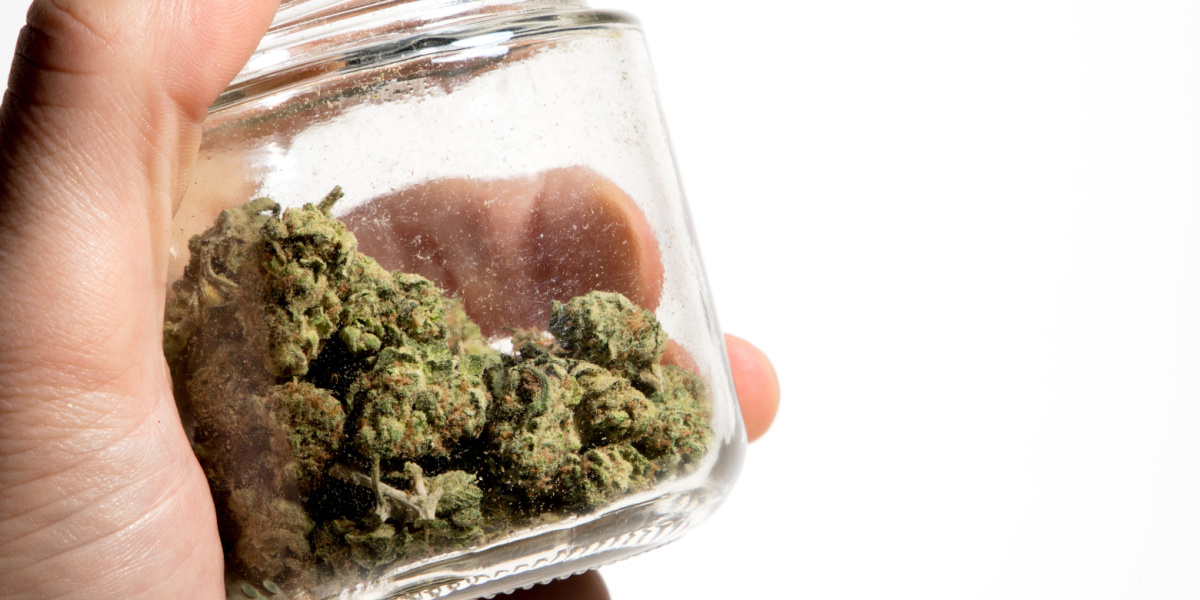Delta-8 tetrahydrocannabinol (THC) is a minor cannabinoid still under intense research. While the FDA has not approved it yet, anecdotal experience showcases some health benefits. This article explores those effects, analyzing different consumption methods, plus differences between Delta-8, Delta-9, and CBD.
- Delta-8 THC is not yet legalized at the federal level in the USA.
- Several studies notice critical health benefits, though the proper dosage and ingredients are crucial.
- Delta-8 is less addictive and psychoactive than Delta-9 THC, but CBD is safer.
- Delta-8 takes up to five days to not show up in a drug test for occasional users.

What is delta-8 THC?
According to the National Cancer Institute, delta-8 THC is an analog of tetrahydrocannabinol (THC), meaning it is a similar substance.[2]
Tetrahydrocannabinol is the main psychoactive component of cannabis, the plant from which marijuana is made. Delta-8-THC has a similar structure, but its psychoactive effects are milder, and it is reported to have various potential benefits.
Delta-8 THC may alleviate symptoms of nausea, anxiety, and appetite loss. It may also have pain-relieving properties and neuroprotective effects.[4]
Here’s how delta-8 works:
When inside your body, delta-8-THC connects itself to a receptor in your brain called cannabinoid G-protein coupled receptor CB1.[2] When this happens, delta-8 inhibits certain enzymes and enhances the activity of others. That’s how it can alleviate some of the symptoms mentioned above.
Effects of delta-8 THC
The Food and Drug Administration (FDA) has not yet approved delta-8 for general consumption because it has some adverse effects and cannabis abuse is prevalent.
Still, some empirical research suggests that delta-8 can have calming and analgesic properties. This substance may help people with cancer, severe PTSD, or sleep issues.
Does delta-8 get you high?
A 2022 study published in Missouri Medicine by the FDA (Food and Drug Administration) claims that delta-8 THC is a psychoactive substance with intoxicating effects.[5]
Delta-8 THC can get you “high,” although this sensation can be less intense than that from shatter cannabis concentrate, which is 90% pure THC.
Still, the FDA mentions these intoxicating effects are more potent than those naturally present in the raw extract of cannabis. As a result, the FDA does not have reliable measures for setting a safety level for consumption.[5]
Potential benefits of delta-8
The potential benefits of delta-8 are not well-researched, mainly because this substance has yet to be legalized.
However, some empirical studies have interviewed people using delta-8. One such study found that 51% of participants use delta-8 to treat conditions such as:
- Anxiety
- Panic attacks
- Stress
- Depression
- Bipolar disorder
- Chronic pain[8]
These participants did not receive medical recommendations for delta-8 usage and did not inform their healthcare providers. Therefore, they self-administered the substances following personal research.[8]
Forbes notes several reports proving other supposed benefits of taking delta-8, such as:
- Relaxation
- Euphoria
- Pain relief
- Antiemetic (alleviates nausea and vomiting)[3]
Potential risks of delta-8
Forbes mentions potential risks and side effects of delta-8, including:
- Focusing problems
- Impaired short-term memory
- Distorted time perception
- Delusional disorder
- Phobias[3]
The FDA mentions several other adverse effects following reports of delta-8 consumption. These include:
- Vomiting
- Hallucinations
- Impaired coordination
- Loss of consciousness[5]
Marijuana, the substance obtained from cannabis, is also under scrutiny for long-term effects on the brain. It is believed that delta-8 can lead to similar outcomes.
Why does Delta-8 produce these side effects?
Some of these problems may stem from producing Delta-8 products in unsanitary conditions. Manufacturers may also add other substances in the fabrication process.
Moreover, delta-8 THC produces these side effects because it interacts with brain receptors changing how your brain and body function. Different people experience this interaction differently.
For example, in the same way that delta-8 THC can reduce nausea and pain, it can also cause dizziness, drowsiness, increased heart rate, and high blood pressure.[1]
All these adverse reactions vary depending on the dose, individual tolerance, and other factors.
How is Delta-8 taken?
Delta-8 is taken in several forms, just like other cannabis-based supplements. These different options exist because of consumption preferences and the need for specific effects.
Delta-8 gummies
Delta-8 gummies are discreet and convenient because you do not need a vaporizer or additional equipment.
Their effects are gradual but can last longer than other forms of delta-8 consumption. Thus, they are better suited for people who have not taken this substance before or who dislike the harsh feeling of vaping.
Besides, gummies come in different flavors.
Conversely, delta-8 gummies can be more expensive and difficult to dose accurately. They are also easy to misplace or steal.
Delta-8 edibles
You can infuse Delta-8 into a wide range of foods and beverages, from cookies to smoothies, and consume it orally. Those are delta-8 edibles.
Delta-8 edibles are easy to consume on the go and have less intense, gradual, and long-lasting effects. Like marijuana edibles, delta-8 edibles help patients manage symptoms throughout the day.
On the downside, it is difficult to pinpoint the appropriate dose of delta-8 in edibles, meaning you can expect unpredictable effects with the potential of an overdose, which can lead to severe consequences.
Delta-8 vapes
Delta-8 vape has a fast onset, meaning it can relieve strong symptoms quickly. It is also quite strong, causing an intense experience.
Conversely, there is a strong correlation between vaping and several health risks, such as lung damage and an increased risk of respiratory conditions.
Delta-8 vapes are also more likely to be contaminated with other dangerous-to-inhale substances, like heavy metals or harmful chemicals.
Another deterrent may be the increased price of delta-8 vapes compared to other solutions.
Delta-8 tinctures
Delta-8 tinctures can be taken sublingually, but you can also add them to food and beverages. They can also be easily measured, giving you more control over their dosage.
On the downside, these tinctures have strong tastes and odors. It may also take up to an hour to see the effects. Although, for most the effects are seen within 10 to 30 minutes, even if you take them sublingually.
Delta-8 topicals
Delta-8 topicals are applied directly on the skin, providing localized pain relief and reducing inflammation. Another major advantage is the lack of psychoactive effects, including no altered mental states.
However, delta-8 topicals also have limited benefits because they do not enter your bloodstream. Besides, they may cause skin irritation or allergic reactions.
Is Delta-8 legal?
Delta-8 has several risks and adverse effects, and the FDA mentions it cannot establish a threshold for safe consumption because this is a synthetic product.[5]
As a result, Delta-8-THC remains a Schedule I controlled substance in the United States, meaning it is illegal under federal law.
Still, due to legislation and regulation issues around certain delta-8 products in some states, they can be bought legally in some instances. Marijuana is also legal in some states and may have similar calming and analgesic effects.
Is Delta-8 addictive?
Addiction is a complex phenomenon caused by a mix of genetics, environment, and individual brain chemistry.
Even so, delta-8 THC is not considered highly addictive – especially compared to delta-9 THC. However, chronic abuse may lead to addiction, and you may have to undergo withdrawal, detox, and treatment.
Delta-8 vs. Delta-9
When it comes to delta-8 vs. delta-9, these substances have similar structures. They are both cannabinoids extracted from the cannabis plant, which has over 100 such compounds.
However, delta-8 THC is a minor cannabinoid found in small amounts in the cannabis plant, whereas delta-9 is found in higher quantities.[6]
| Delta-8 THC | Delta-9 THC | |
| Benefits | Analgesic, anxiety reduction, nausea treatment | Pain relief, anxiety reduction, appetite stimulation, sleep promotion |
| Risks | Mild psychoactive effects, skin irritation, allergic reactions | Psychoactive effects, increased heart rate, dizziness, impaired coordination, increased appetite |
| Legal Status | Illegal in most states and jurisdictions | Legal in some states and jurisdictions |
| Addiction-Forming | Not considered highly addictive | Considered highly addictive |
Delta-8 vs. CBD
Delta-8 and CBD are both compounds in cannabis. While delta-8 is similar in structure to delta-9 and, thus, produces psychoactive effects, CBD lacks these reactions.[7]
| Delta-8 THC | CBD | |
| Benefits | Pain relief, anxiety reduction, nausea treatment | Anti-inflammatory, antioxidant, neuroprotective properties, sleep promotion |
| Risks | Mild psychoactive effects, skin irritation, allergic reactions | Fatigue, dry mouth, diarrhea, changes in appetite, potential interactions with certain medications |
| Legal Status | Legal in some states and jurisdictions | Legal at a federal level, but not in all US states at state-level |
| Addiction-Forming | Not considered highly addictive | Not supposed to be highly addictive |


-guide-detail.jpg?v=1756808755)
-guide-detail.jpg?v=1722502608)
-guide-detail.jpg?v=1722503135)